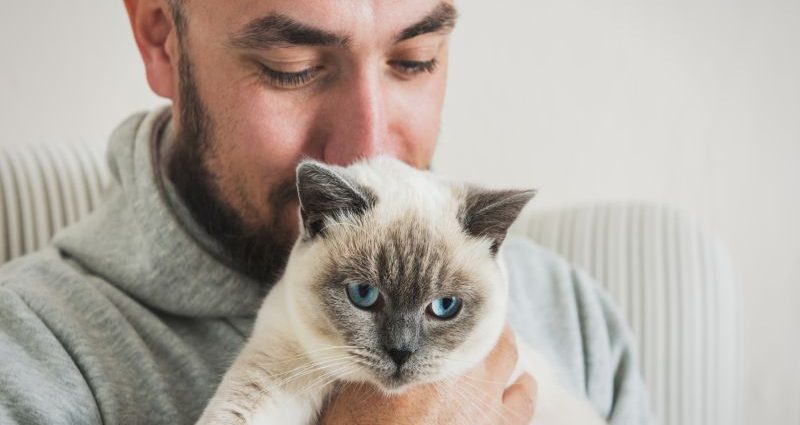THURSDAY, Oct. 27, 2022 (HealthDay News) — For cat owners who are convinced that their furry feline understands and even responds to the sound of their voice, here’s the reward they’ve been waiting for: A new French study finds that, yes, cats can identify their owner’s cooing and calling.
After extensive work with 16 cats, the investigators concluded that cats can perceive and respond to the words of a human being, with two big caveats — that human must be the cat’s owner and that owner must be speaking directly to their cat, rather than to another human.
“It is the first time that a study demonstrates that cats can discriminate between human speech specifically addressed to them [cat-directed speech] and speech addressed to other humans [adult-directed speech],” explained study author Charlotte de Mouzon.
That’s not particularly surprising, said de Mouzon, a cat behavior consultant with the ethology and cognition research lab at Université Paris Nanterre, in France.
She noted, for example, that prior research with dogs has found that dogs discriminate between speech directed at them and speech directed at other people. “We expected that cats would discriminate cat-directed speech from adult-directed speech under the same conditions” as dogs, de Mouzon said.
What was surprising, she added, is that the cats in the study were not equally sensitive to the speech of strangers, and were seemingly unable to distinguish between sentences spoken by a stranger to another person and sentences spoken by a stranger to the cat directly.
The study findings were published in the Oct. 25 issue of Animal Cognition.
Throughout the study, the research team tested a total of three different vocal situations.
The first involved shifting back and forth between using the voice of a cat’s owner versus the voice of a total stranger. The second and third involved two shifts: the first shift between a cat owner’s voice and a stranger’s voice, and the second shift between speech directed to the cat directly versus speech between two people.
In each instance, the cats were videotaped to monitor their reactions to the audio of voices being played, with a particular focus on whether the cats’ ears or tail moved, whether their eyes dilated, and whether or not the cats remained in resting mode.
The result: During the first vocal situation, the intensity of the cat’s behavior diminished in roughly two out of three instances whenever it was exposed to the sounds of a stranger’s voice, despite the stranger calling out the cat’s name.
By contrast, whenever the voice emanated from their owner, the cat’s behavior intensity almost immediately picked up significantly, as indicated by the cat shifting their ear position towards the speaker where the audio was coming from, pupil dilation and more general movement around the room.
The team underscored the suddenness with which behavior changed as an indication that the cat could, indeed, tell it was their owner speaking.
When running through the other two vocal situations, investigators determined that roughly two in three displayed notably less intense behavior whenever their owner spoke to another person, rather than to the cat directly. And when a stranger spoke — whether to the cat or to another person — no increase in behavior intensity was observed.
The upshot: Cats know when their owners are speaking and know when their owners are speaking to them.
Taken together, the findings “highlight the importance of one-to-one relationships for cats, reinforcing recent literature on cats’ ability to form strong bonds with humans,” de Mouzon said.
“The fact that they react to the particular way we talk to them, and not just regarding food, implies that we are more than just food providers,” de Mouzon stressed.
In the everyday life of a cat, “we are a central part of their social environment,” she said.
More information
There’s more on cat behavior at the University of Pennsylvania.
SOURCES: Charlotte de Mouzon, PhD, ethology professor and cat behavior consultant, ethology and cognition research lab, Université Paris Nanterre, France; Animal Cognition, Oct. 25, 2022
Copyright © 2026 HealthDay. All rights reserved.

